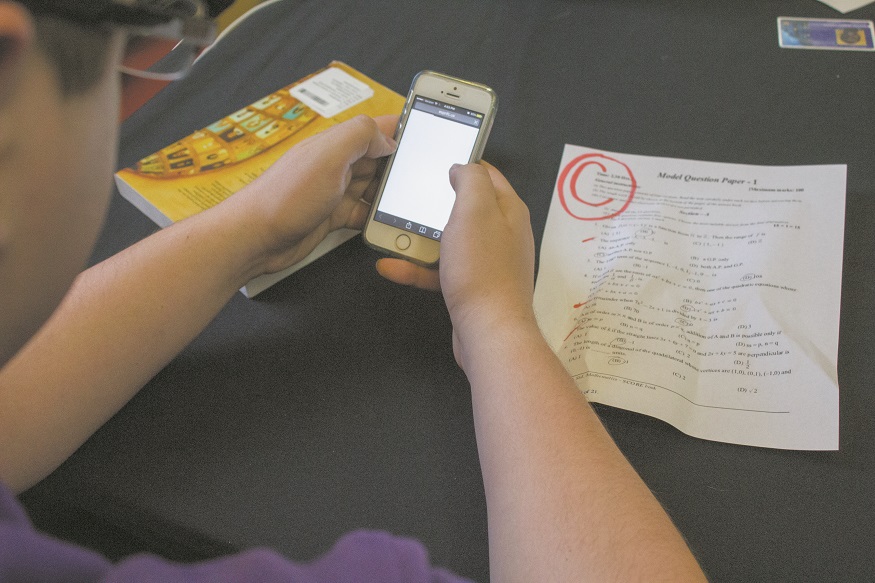Researchers Find High Cellphone Use Results in Lower GPAs
“If college students want to excel in the classroom, they’ll need to lay off using their smartphones,” says Brian Heaton, a journalist for the Center for Digital Education.
Kent State University faculty members and researchers, Andrew Lepp, Ph.D., Jacob Barkley, Ph.D., and Aryn Karpinski, Ph.D. Conducted a study on roughly 500 students. They discovered that subjects who used their cellphone for 10 hours or more a day, developed a significantly lower GPA—that usually averaged 2.84—as opposed to subjects who only used their phone for two hours a day. Subjects who used their phones infrequently had an average GPA of 3.15. Moderate users, who were on their phones for roughly four hours a day, had an average GPA of 3.06.
According to Barkley, it may not be the cellphones’ fault; some students are distracted easily.
It is possible that cellphones are “a potent distractor,” says Barkley. “Some students cannot resist looking at it and playing with it when they should be doing other academic-related tasks.”
He even recalled students looking at their phones while in class, and students touching their phones while studying with no intention to use them.
This doesn’t mean you need to put down your phone completely, but when in a classroom setting or while studying, phones should be turned off or left behind in your vehicle to ensure no distractions. Barkley suggests putting your phone on silent mode or leaving it behind.
This is the second study conducted to analyze the effects of cellphones. Barkley, Lepp, and Karpinski published a survey prior to this study called, “The Relationship Between Cell Phone Use and Academic Performance in a Sample of U.S. College Students.”
The only discrepancy within this study was the subjects. The researchers decided to control the study and selected subjects based off gender, high school GPA, class standing, academic achievement, and self-confidence for self-regulated learning—which is learning that’s directed by “thinking about one’s thinking, strategic action and motivation to learn.”
Although the subjects were controlled, the outcome was the same— high levels of cellphone use resulted in significantly lower GPAs.
Originally, Barkley wanted to assess cellphone use and its relation to sedentary activity, similar to watching TV. Since cellphones are easily transported, Barkley believed that using cellphones isn’t necessarily inactive, or a sedentary activity. Seeing students using their cellphones in his classroom encouraged Barkley to conduct the study and discover the effects it has on academia.
Many students interviewed at the university were questioned about cellphone use. Not only did students say their cellphone usage drew them from their studies, it also increased their stress level. According to the university’s reports in the journal Computers in Human Behavior, researchers also found that high cellphone use affects the overall wellbeing of a student, resulting in higher anxiety and lower life satisfaction as opposed to their peers who used their cellphones less.
“Sometimes the cellphone just makes me feel like it is a whole new world of obligation that I have because anybody can get a hold of me any time by just thinking about me. If my mom wanted to give me a call right now and just talk for a second, she could. And if I did not call her back by the end of the day, she would get worried. It creates a bit of anxiety and it is kind of annoying sometimes,” one survey participant told researchers.
Other participants expressed that they felt obligated to stay connected to peers and family members as well. Lepp said that many other students found this obligation to the network stressful.
Although there is no exact date, researchers are looking to conduct additional studies on cellphones and their effects towards the human body and brain.







